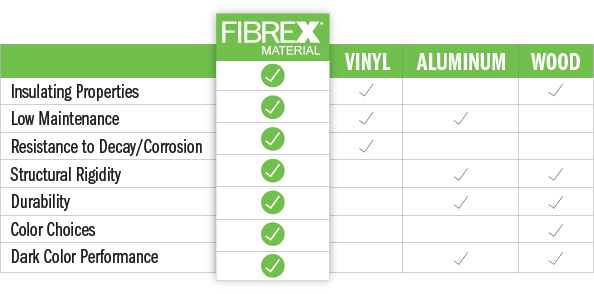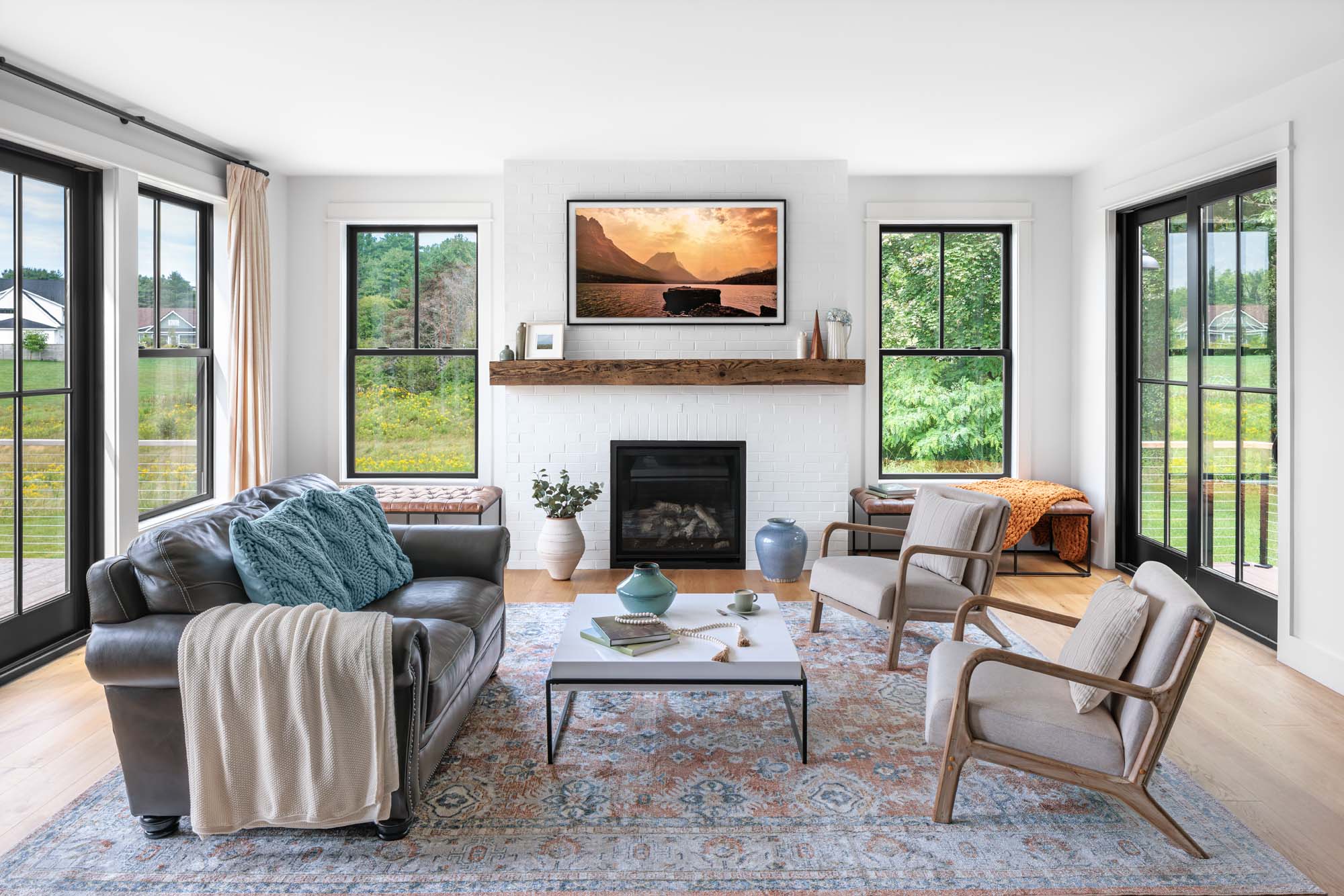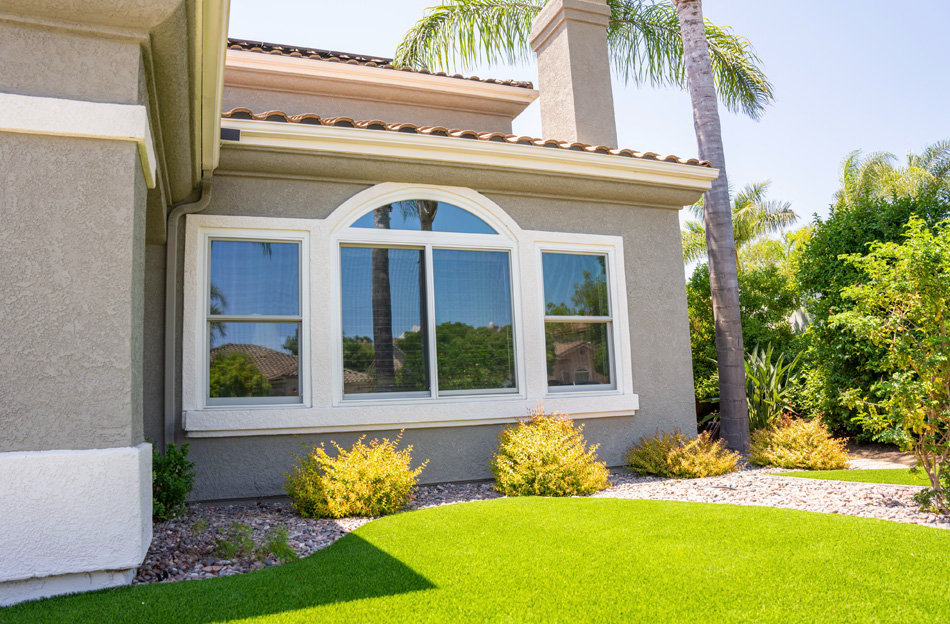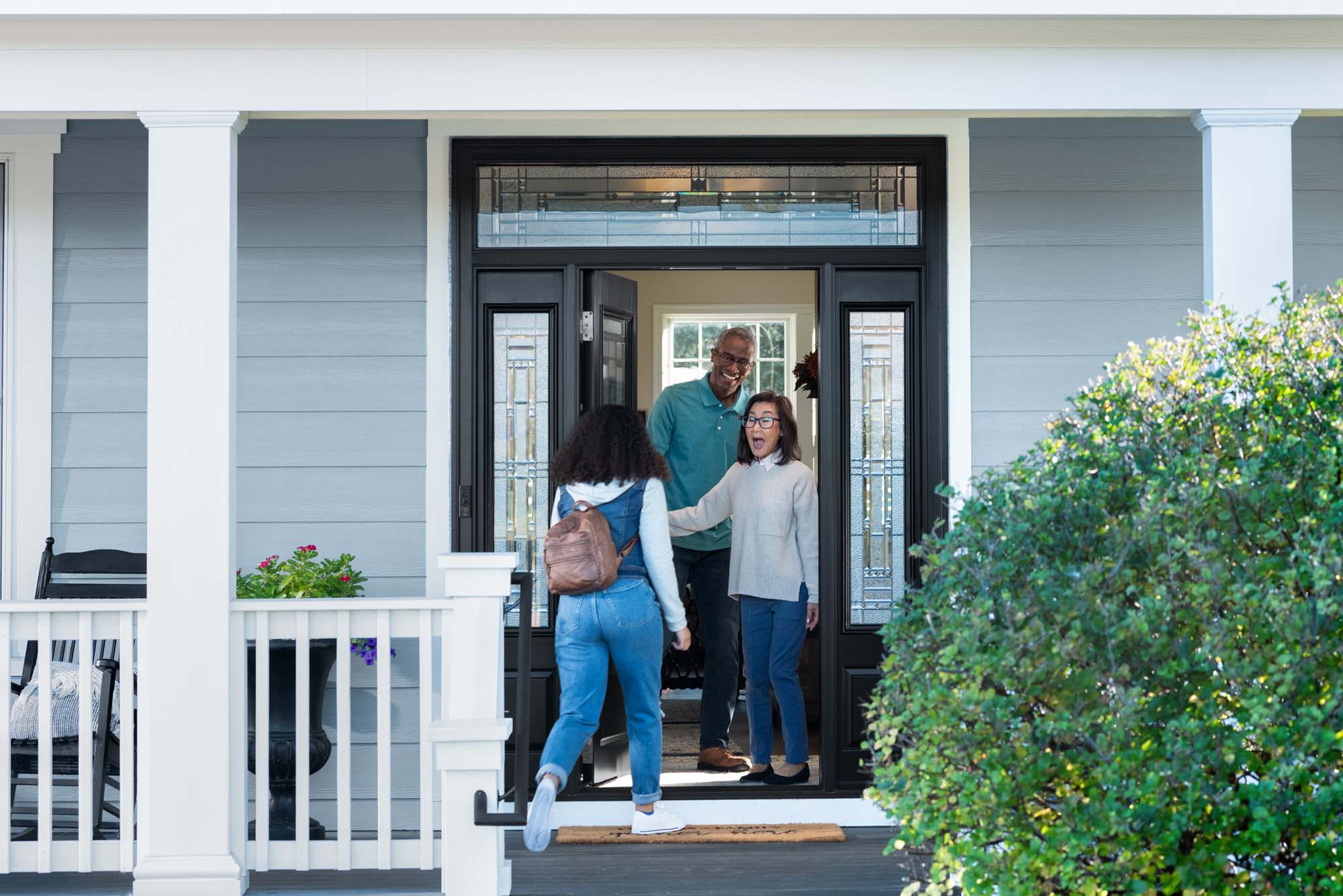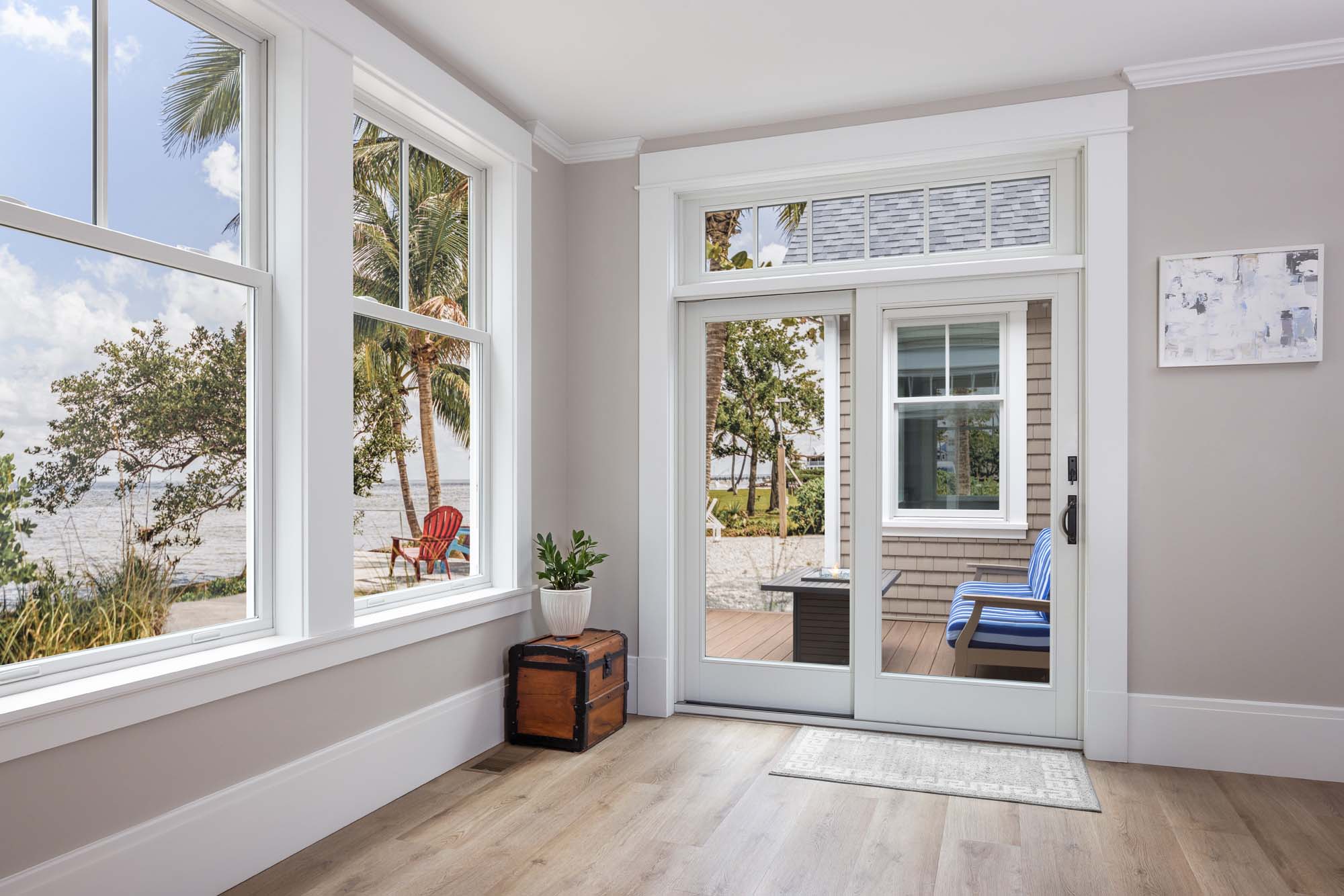What is Fibrex?
All of our windows and doors are made with Renewal by Andersen’s exclusive Fibrex® material, which is produced by combining wood grains and co-polymers together.
The result of this mixture is a material that is stronger and more durable than wood and more energy efficient than vinyl. Fibrex is warranted against warping or chipping from harsh weather and is resistant to both fire and water damage. It also won’t rot and is unaffected by insects like termites. Ultimately, Fibrex strikes the right balance between durability, performance, and visual appeal.
The Advantages of Fibrex® Material
Fibrex offers a wide range of advantages over more traditional frame materials like wood, aluminum, or vinyl. It also allows us to craft beautiful and eye-catching window frames, giving you more glass area and a bigger view of the outdoors. Here are the main benefits of having a window that’s built with Fibrex material:
Low Maintenance
Since Fibrex windows won’t rot or decay, they are less susceptible to mold damage. This means there’s no need for them to be re-scraped or repainted. But depending on your preference, you can still have your Fibrex window frames painted.
Great Insulation
Fibrex has one of the best thermal insulating properties on the market. Combined with Andersen’s High-Performance™ Low-E4® glass, Fibrex effectively retains heat in your home during the cold winter months, helping you save money on energy bills. Additionally, it excels at noise reduction, outperforming vinyl in creating a quieter living space.
More Sustainable & Energy Efficient
Fibrex is composed of 40% reclaimed wood fiber, most of which is recycled from Andersen Corporation’s wood-window manufacturing facilities. This makes it an extremely sustainable material – and the advanced makeup and durability of Fibrex allows it to be far more energy efficient than wood. Unlike wood, it does not crack or warp, which prevents the escape of costly heating and cooling energy.
How does Fibrex
compare to other materials?
• Insulates 700 times better than aluminum
• Reduces VOC (Volatile Organic Compound) emissions since no wood preservatives are used
• Unlike wood and vinyl, it retains its stability and rigidity in all climates
